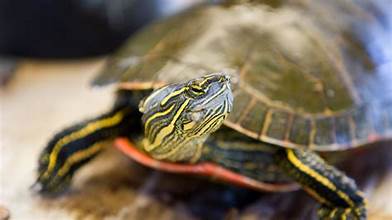While many turtles are not naturally social creatures, there are exceptions like the Reeve’s Turtle, which is known for its friendlier demeanor. Proper handling and interaction are crucial to ensuring your turtle’s well-being and minimizing stress. In this blog post, we’ll explore the best practices for handling turtles and provide tips for fostering a positive relationship with your shelled companion.
Understanding Turtle Behavior
Turtles are generally solitary animals, and their instincts prioritize survival over social interaction. However, species like the Reeve’s Turtle and the Red-Eared Slider may show curiosity and comfort around humans when appropriately socialized. Recognizing your turtle’s mood and body language is essential for safe and stress-free handling. Signs of stress include:
- Hissing or retreating into their shell
- Attempting to bite
- Excessive movement or struggling
Best Practices for Handling
- Wash Your Hands
- Always wash your hands every time before and after you handle your turtle to prevent the spread of bacteria like Salmonella.
- Approach Calmly
- Move slowly and gently when picking up your turtle. Sudden movements can startle them.
- Support Their Body
- Place one hand under the plastron (belly) and the other on the carapace (top shell) to provide full support. Avoid holding them solely by their limbs or tail, as this can cause injury.
- Keep Handling Sessions Short
- To minimize stress, limit handling to 5-10 minutes. Observe your turtle for signs of discomfort, such as withdrawing into its shell or excessive squirming.
- Supervise Interaction
- Ensure any interaction with children or pets is supervised to prevent accidental harm to the turtle or the handler.
Tips for Minimizing Stress
- Create a Familiar Environment
- Handle your turtle in a quiet, familiar space to reduce anxiety. Avoid noisy or crowded areas.

- Socialize Gradually
- Begin with short handling sessions and allow your turtle to acclimate to your presence over time. Offering treats during these interactions can build trust.
- Respect Their Preferences
- Some turtles may never enjoy handling, and that’s okay. Respect their natural tendencies and minimize unnecessary handling.
- Observe and Adjust
- Pay attention to your turtle’s reactions during handling and adjust your approach to ensure their comfort.
Special Considerations for Reeve’s Turtles
The Reeve’s Turtle is often described as more interactive and tolerant of handling than other species. Here are some additional tips for handling these friendly turtles:
- Frequency:
You can handle Reeve’s Turtles slightly more often, as they adapt well to human interaction

- Enrichment:
During handling, provide opportunities for exploration, such as letting them walk on a soft, safe surface.
- Reinforce Positivity:
Use gentle strokes on their shell or head to help them associate handling with positive experiences.
Safety Precautions
- Avoid Overhandling
- Even friendly turtles can become stressed if overhandled. Stick to short sessions and observe their body language.
- Protect Yourself
- Use gloves if you’re concerned about Salmonella. Avoid touching your face while handling your turtle.
- Prevent Accidents
- Handle your turtle close to a soft surface to reduce injury risk if they wriggle free.
Final Thoughts
Turtles can be fascinating and rewarding pets but require understanding and respecting their unique needs. Handling them carefully and minimizing stress can create a harmonious relationship with your shelled friend. Remember, not all turtles enjoy handling, and that’s perfectly natural. Focus on providing a safe, enriching environment to ensure their happiness and health.
Do you have specific questions about your turtle’s behavior or care? Let us know in the comments; we’ll gladly help!




